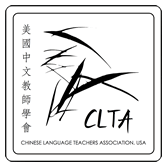From the President
December 1999
Source: CLTA Newsletter 23.3. December 1999.
We all owe a tremendous debt of gratitude to Immediate Past President Cynthia Ning and our outgoing members of the Board of Directors, as well as to this past year’s Program Chair Xie Tianwei and Nominations Chair Audrey Li, for their efforts and excellence. And as always, we are most grateful to Executive Director Madeline Chu, JOURNAL editor Teng Shou-hsin, NEWSLETTER editor Ted Yao, and WEB MASTER Marjorie Chan, for their dedication and contributions to our association.
As we enter the 21st century, we thank our founders, including John Young, for bringing our association from what Dr. Young has dubbed a “cottage industry” to the status of an emerging field. We have made great strides over the past decades in such areas as curriculum and material development, assessment, classroom learning and teaching, and technology. Increasing attention has also been paid to classroom-oriented research and teacher development, and to bridging the gap between CFL acquisition research and instructional practice.
To continue building our field, not only do we need a more systematic and planned approach to study CFL learning and teaching from the perspectives of linguistics, psycholinguistics, and sociolinguistics and to continue to integrate culture and literature into our curriculum, we also want to work more closely with all other sectors of our field. The First Chinese Language Summit, held in the spring of 1999, involved the leadership of CLASS and CLTA, and has provided new momentum for our efforts. In this connection, one of our CLTA projects for the new year is to conduct a national survey on issues regarding articulation between pre-college and college Chinese language instruction. Input from each one of you for this survey will be important for our field advancement efforts.
The theme for next year’s ACTFL annual meeting — Language Learners in the 21st Century: Every One, Every Day, Every Where — seems to be a most appropriate one for us as well. Knowledge of other peoples’ language and culture is crucial in one’s understanding of how other peoples construct their version of reality. With a language of more than 1.2 billion native speakers that is also a less-commonly-taught one in the western hemisphere, our challenges are daunting. To push our mission forward, we must continue to think globally and act locally and continue to create the best possible conditions for the learning and teaching of Chinese language, literature, and culture. It is through our daily individual and collective efforts that we will be able to make a difference in tackling the challenges ahead.
With thanks for your contributions, and all good wishes for the coming year,
Ke Chuanren
November 28, 1999
